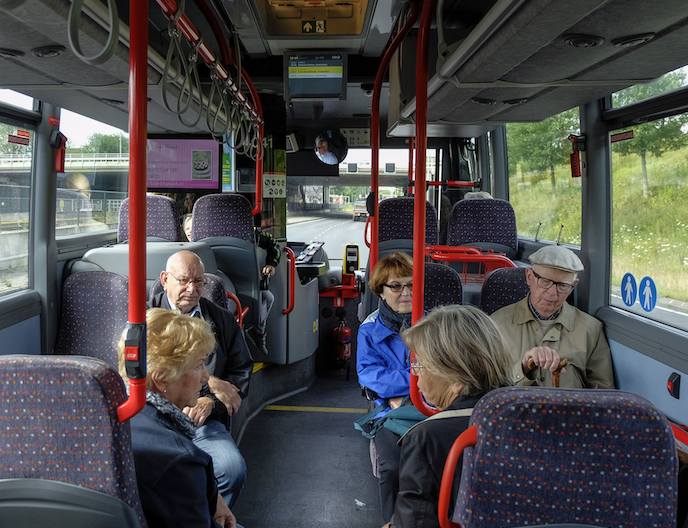Early intervention thanks to ambient technology which detects elderly at risk
Ageing populations face health and wellbeing concerns related to cognitive decline and increased frailty, as well as social isolation. Yet if the warning signs can be detected early, suitable interventions can be adopted. The EU-supported City4Age project developed a ‘social prevention model’ of elderly care, utilising ‘ambient’ ICT tools and services. The project’s key objectives were: monitoring and interpreting elderly behavioural data; intervening to promote improved health and wellbeing; creating support networks of healthcare professionals, friends and family, and keeping participants informed and aware of healthier lifestyle opportunities. From data to intervention In the first phase of the City4Age project, behavioural data - such as motility, socialisation or cognitive ability – was collected using a variety of means including sensors, direct observations or pre-existing smart city data. User-friendly versions of this data were automatically sent to each individual and their support network. More specialised versions - serving as alerts or warnings - were sent to healthcare specialists who checked to see what follow-up actions (such as a home visits) might be required. “The screening aspect of the system has proven to be cost-effective. For example, based on our cooperation with the geriatricians involved, we can hypothesise that out of 1 000 people monitored, 50 people would likely need further data analysis, resulting in only 10 people needing a traditional home visit, which is expensive,” says Dr Paolo Paolini, technical manager and former coordinator of the project. Another advantage to this approach is that the collated data give city authorities an overall picture of how things are going amongst certain age groups, or in particular geographical areas. This enables them to prioritise resources. The second intervention phase used smartphones to send several daily messages to the participants. These included: information about topics of potential interest, data health snapshots, as well as opportunities and activities available through local organisations or businesses, along with encouragement to take part. The project was successfully piloted in 6 cities: Athens, Birmingham, Lecce, Madrid, Montpellier and Singapore, involving around 150 elderly people. City4Age demonstrated how the system could function as an assembly of readily available technology, both for data collection (smartphones, fitness devices, sensors at home or in the city) and intervention (smartphones, home devices such as Amazon Echo). Crucially, the system can also make good use of the abundant pre-existing data gathered in smart cities, much of it poorly (if ever) used. For example, in the Madrid pilot, City4Age made use of public transportation data (about how elderly people move through town) already being collected. This opens up the possibility of widespread urban adoption. “The participants didn’t mind being monitored, nor find the technology annoying. They liked seeing their own data, receiving the messages: it made them feel cared for. They were keen on participating, they felt they were helping future generations,” says Dr Di Blas, project coordinator. “As we monitored for a relatively short time, no serious behavioural decline was identified. The system would need several years to start detecting significant changes.” While the technology and user-adoption were successfully demonstrated, barriers to a comprehensive roll out may prove to be economic and political. “Costs must be shared among various actors and as ‘prevention’ is a long-term effort, it takes years to reap the benefits. For politicians and business people this can be a hard sell so we are currently strengthening our business model.” says Dr Di Blas.







